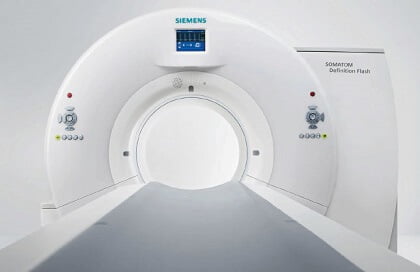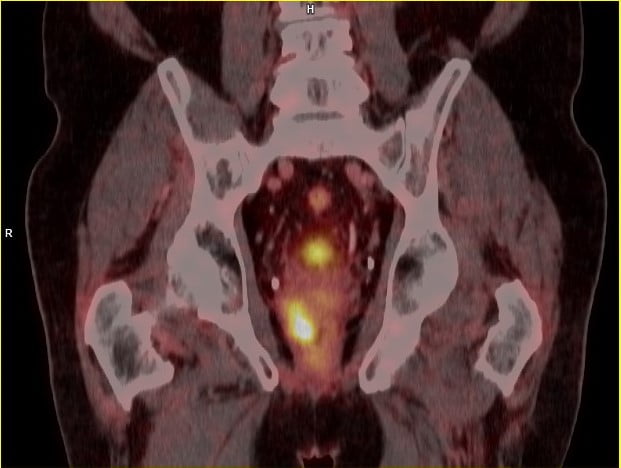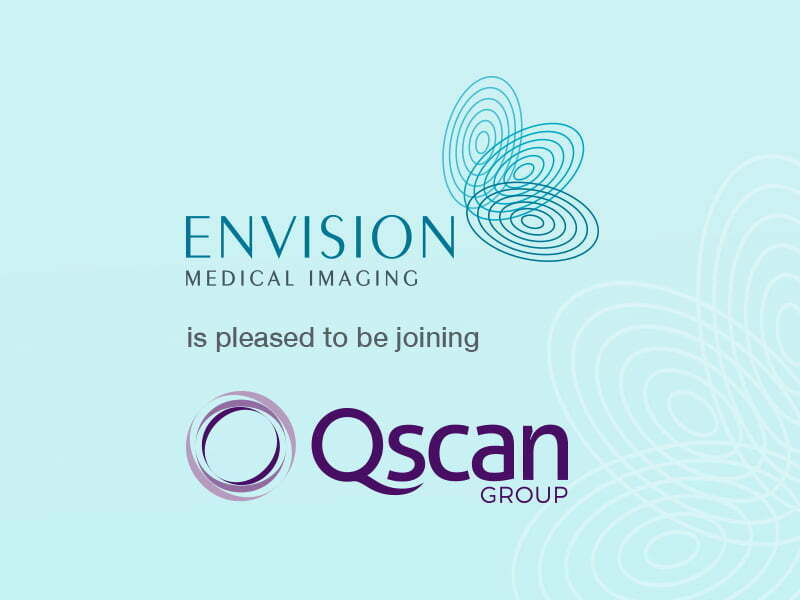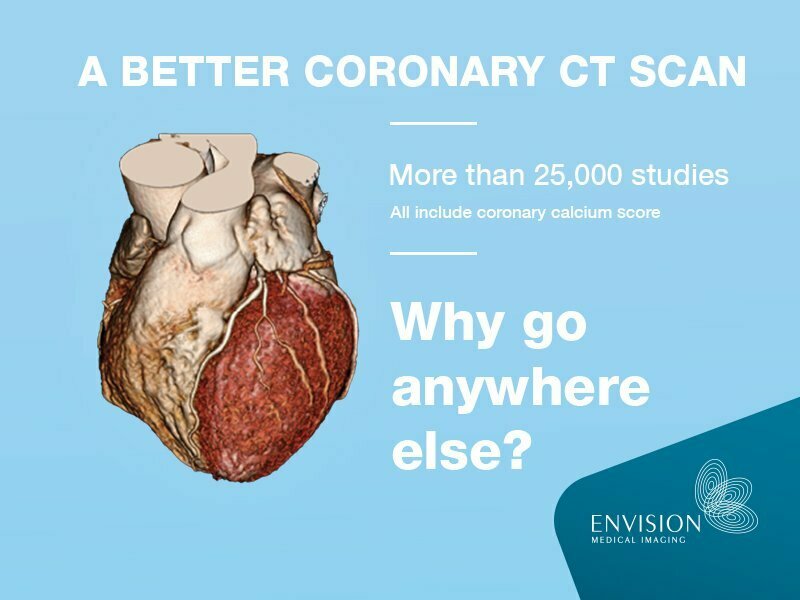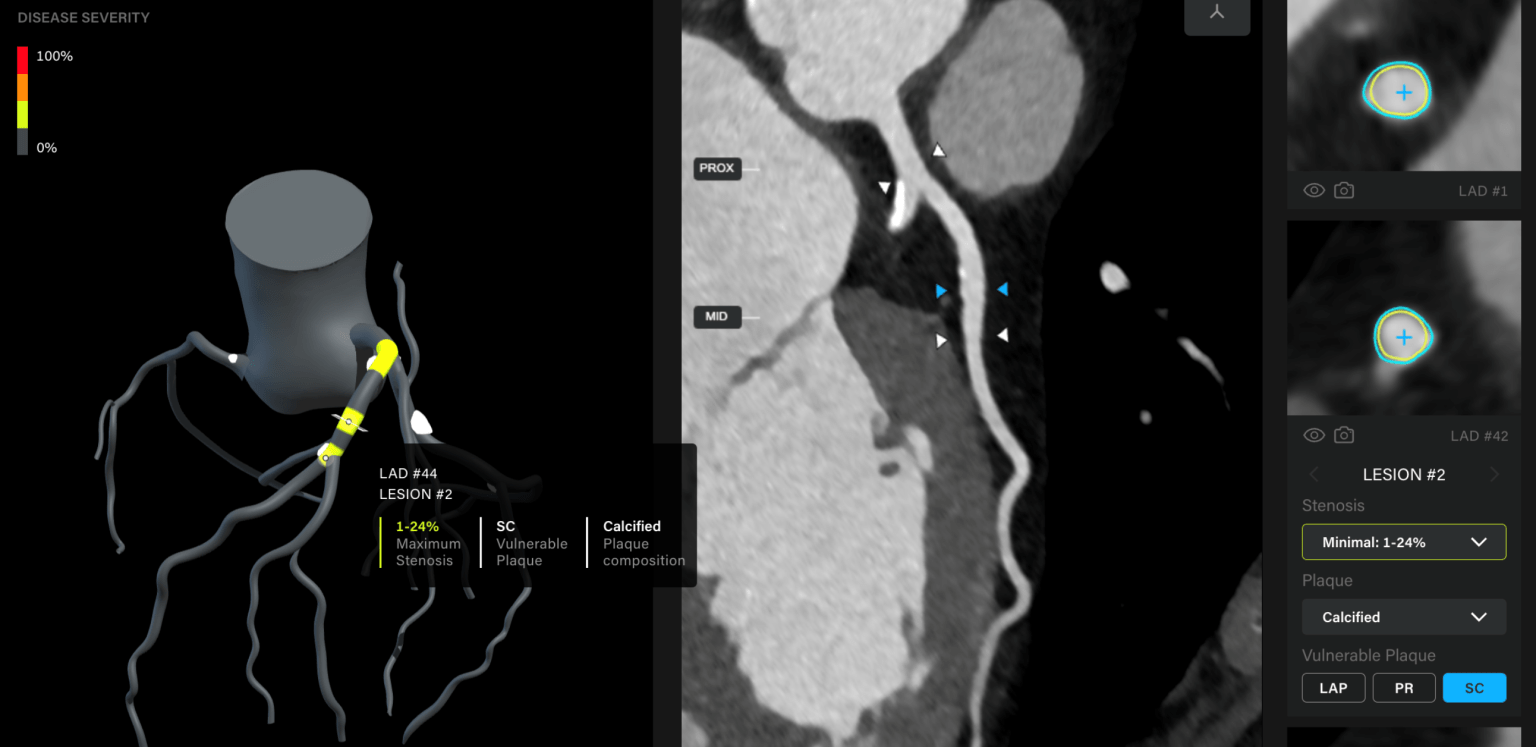What kind of CT scan do you perform to detect lung cancer?
The type of CT scan we carry out is known as a low dose CT of the chest. It is considered more accurate than a regular chest X-ray.
We are the only private clinic in Perth to offer state of the art Somatom Force CT scanner with Turboflash. It can complete a study in less than 1 second at a lower dose and higher quality.
What can a low dose CT scan detect?
Our scans can detect:
- Lung cancer from causes such as cigarette smoking or exposure to asbestos
- Asbestosis (lung scarring)
- Pleural plaque and mesothelioma (pleural cancer)
What is the benefit of having this scan?
Lung cancer is the leading cause of cancer death in Australia. A low dose CT scan has been proven to reduce the risk of death from lung cancer by at least 20% in patients considered at high risk of developing lung cancer from cigarette smoking. This is because the scan can detect cancer at an earlier stage, when it is still curable.
At the moment it isn’t known whether a low dose CT scan can reduce the likelihood of death from mesothelioma or asbestosis.
Can lung cancer detection improve my health or help me live longer?
Having a CT scan may not improve your health or help you live longer if you already have advanced lung cancer, or if it has spread to other parts of your body.
Some cancers never cause symptoms or become life?threatening, but if found by a screening test, the cancer may be treated. It isn’t known if treatment can help you live longer over receiving no treatment at all. There could also be serious side effects associated with the treatment provided.
How effective is a chest X-ray at detecting lung cancer?
A chest X-ray generally won’t detect lung cancer in your body until it has already spread. Extensive medical trials have shown they aren’t effective in reducing lung cancer deaths.
What to expect?
What does the test involve?
A low dose CT scan is a straightforward and painless procedure that involves lying on a flat table in a donut shaped scanner. When inside you will be asked to hold your breath for 6 seconds. The entire test should take less than five minutes.
You don’t need to fast or alter your normal diet prior to the scan and no injections are required.
How often should I have a scan?
If you’re considered to be at a high risk of developing lung cancer, we currently recommend you have the test annually. This may change in the future as research into low dose CT scans continues.
After your scan
How will I get my results?
The results of your test will be sent to your referring doctor within 3 working days of your scan. If the findings are urgent, your doctor will be informed promptly. We recommend you make an appointment to see your GP to discuss your results.
What are the risks of having a low dose CT of the chest?
Proceeding with a screening test can be a difficult decision to make. Before having this scan, you may want to discuss the associated risks with your doctor:
- False?negative test results. Screening test results may come up normal even though lung cancer is present. A person who receives a false?negative result (one that shows there is no cancer when there really is) may delay seeking medical care even if symptoms exist.
- False?positive test results. The CT scan may appear to be abnormal even though no cancer is present. A false?positive result (one that shows there is cancer when there really isn’t) can cause anxiety and may be followed by more tests (such as a biopsy), which also have risks.
- Radiation exposure to your chest. Radiation exposure from the test may increase the risk of developing other cancers, such as breast cancer. Fortunately, the likelihood of this is very low (approximately 1 in 10,000).Your referring doctor can advise you about your risk of developing lung cancer and whether it is beneficial for you to have the CT scan.
